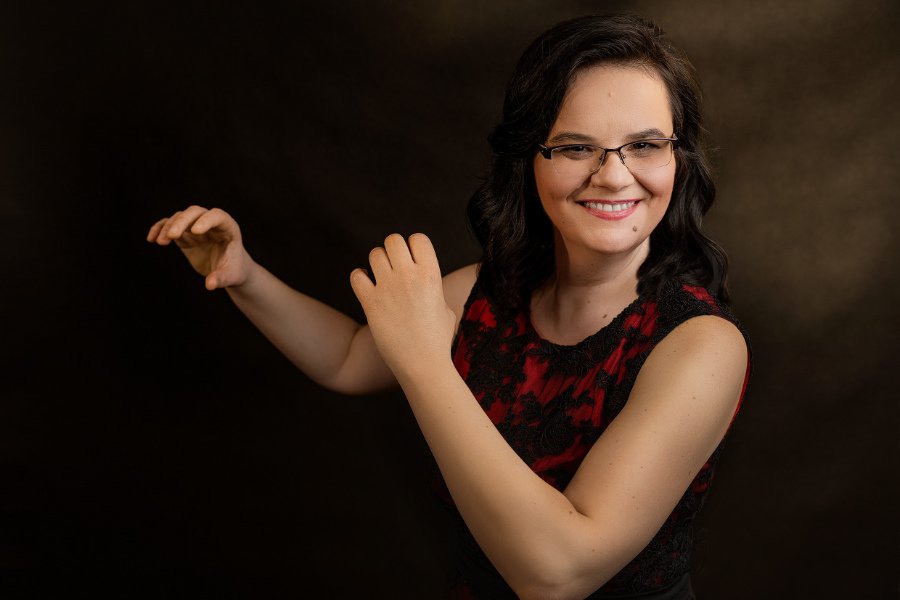Alicja Molitorys short recital takes its title from a composition by Krzysztof Wołek. The word "arguro" is derived from a Proto-Indo-European root and can be translated as silver or, more broadly, as a shiny metal. It is not only the material from which flutes are most commonly made today. Silver has the best electrical conductivity of all the elements, which conceptually refers the listener to the electronic part realized by the composer. The second piece, in turn, metaphorically refers to optics. In Prism, Ryszard Osada referred to the phenomenon of dispersion of light passing through a prism. The piece is based on an exploration of the three lowest flute notes and their deformation, 'splitting' in sonic structures derived from the basic tones and their overtones. The course of the composition (although it contains fairly precise time markings as suggested by the composer) depends to a large extent on the performer's interpretation. Finally, Volodymyr Runchak's Homo Ludens I is a composition that opens a cycle of virtuosic pieces for various instruments. It requires from the flutist not only perfect classical technique, but also proficiency and ease in using avant-garde techniques: musically extracting murmurs and noises, singing while playing, playing quarter tones, and multiphonics.
The number of seats for projects to be held in the NFM concert halls and other spaces is subject to availability. Entry tickets with free admission will be distributed before a given event, at the entrance to the hall. No advance bookings of entry tickets.
The project is a part of the Sound Gallery – a special event of the Musica Polonica Nova festival.

